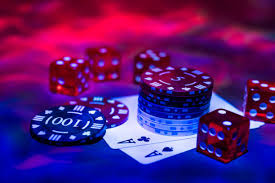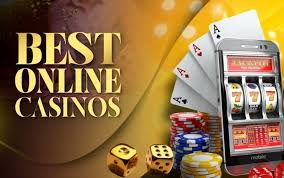
Gaming with Tokenized Assets
In recent years, the gaming industry has undergone tremendous transformations, fueled by advancements in technology and changes in player expectations. One of the most significant innovations is the emergence of tokenized assets. These digital representations of real-world value have started to reshape the landscape of gaming, providing gamers with unprecedented ways to own, trade, and monetize in-game items. For instance, new platforms like Gaming with Tokenized Assets betandreas site have begun integrating these assets, fostering a more engaging experience for players.
What Are Tokenized Assets?
Tokenized assets refer to the representation of physical or digital assets on a blockchain. They can include anything from cryptocurrencies and non-fungible tokens (NFTs) to virtual real estate and in-game items. Tokenization allows for the verification of ownership, enhancing security and transparency in transactions. In the gaming world, tokenized assets provide players with genuine ownership of their in-game purchases, something that traditional gaming models have struggled to achieve.
The Benefits of Tokenized Assets in Gaming
Tokenized assets offer several advantages that can significantly enhance the gaming experience:
- True Ownership: With tokenized assets, players can truly own their in-game items. This means they can buy, sell, or trade these assets freely, similar to how one might trade stocks or real estate.
- Interoperability: Tokenized assets can cross-platform boundaries, enabling players to utilize their belongings in different games or virtual worlds. This is a massive leap from traditional gaming ecosystems, where items are often confined to a single game.
- Enhanced Security: Blockchain technology offers a secure method for tracking and verifying ownership, reducing the chances of fraud and hacking, which are significant concerns in traditional gaming marketplaces.
- Monetization Opportunities: Players can monetize their gaming skills and investments. For instance, players can earn tokens or cryptocurrencies that have real-world value through gameplay or by selling rare items.
How Tokenization Works in the Gaming Sphere
Tokenization in gaming usually involves the creation of NFTs. These tokens represent unique in-game assets, such as characters, skins, virtual real estate, or even weapons. Each NFT is stored on a blockchain, which is an immutable ledger. This ensures that players can verify the rarity and ownership of each asset. For instance, a rare sword in an online RPG that is represented as an NFT can be bought, sold, or traded on various NFT marketplaces, allowing players to profit from their unique items.
Case Studies: Successful Implementations of Tokenized Assets in Gaming
Several games and platforms have already begun to harness the power of tokenized assets:
1. Axie Infinity

Axie Infinity is a pioneer in the play-to-earn model, where players can breed, raise, and battle creatures called Axies. Each Axie is an NFT, allowing players to trade them on the marketplace. This game has created a thriving economy and enables players to earn significant sums of money by participating actively in the game’s ecosystem.
2. Decentraland
Decentraland is a virtual reality platform where users can buy, develop, and sell plots of virtual land, each represented as a unique NFT. This project showcases how tokenized assets can create a digital economy that mimics real-world property ownership.
3. The Sandbox
The Sandbox allows users to create, own, and monetize their gaming experiences. Players can create games using voxel assets, which are then tokenized. This platform encourages creativity and collaboration while providing monetization options through the sale of user-generated content.
The Future of Gaming with Tokenized Assets
The potential for tokenized assets in gaming is enormous. As more developers embrace blockchain technology, we can expect a shift in how games are designed and monetized. Players may have more say in the development process, as their feedback can directly influence the game’s economy and asset generation.
Moreover, regulations are beginning to take shape around digital assets and cryptocurrencies, providing a safer environment for gamers and developers alike. As these frameworks develop, we can anticipate broader acceptance of tokenized assets across various gaming platforms.
Challenges and Considerations
While the prospects for tokenized assets in gaming are bright, there are challenges that need to be addressed:
- Scalability: Many blockchain networks still face scalability issues, which can affect transaction speed and costs, especially during peak times.
- Environmental Concerns: The environmental impact of blockchain technology, particularly those that rely on proof-of-work systems, is a growing concern among gamers and developers.
- Legal and Regulatory Framework: As the landscape of digital assets evolves, regulatory considerations will be essential to safeguard both developers and players.
Conclusion
Gaming with tokenized assets is undoubtedly the next frontier in the gaming industry. By providing players with true ownership, fostering interoperability, and opening up new avenues for monetization, tokenized assets have the potential to transform our gaming experiences profoundly. As the technology matures and challenges are addressed, we can expect a thriving ecosystem where players are not just consumers but active participants in shaping their virtual worlds.
